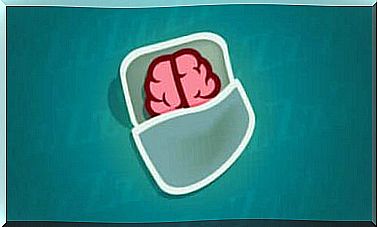A Calm Mind: Being Flexible In Order To Be Happy

As you learn to be flexible, you can choose the setting that best suits your interests. Because the true strength of the human being feeds on mental flexibility and not on those attitudes that show no sensitivity whatsoever for what has happened. After all, happiness is movement and comes into a mind that knows how to find oneself, that accepts one’s own emotions, that connects, that cares about one’s attitude and has clear goals.
When we talk about mental flexibility, some readers might imagine a bamboo forest. Lots of bamboo sticks that bend to every gust of wind and water in the middle of a storm or cyclone and later return to the same position. As such, the metaphor is pretty straightforward. But the real magic of bamboo is not in its flexibility, but in its resilience.
“The brain has a lot more possibilities and energy than we think. So why don’t we try to strengthen it instead of letting it rest? “
Jenny Moix
Our health depends not only on what we do, but also on what we think, in addition to other factors such as B. Genetics, which we will not go into today. Sometimes we don’t realize how precarious our emotional and psychological balance is. So our mind may not be the most relaxing place to live. Too many fears, obsessions, worries and negative dialogues cavort there.
The Catalan psychologist Jenny Moix explains in one of her books that we should be aware that true happiness is not only found in the path we walk. A large part of our wellbeing potential lies in the health of our mental processes.
If we follow this approach, we can say that we will only develop a more resilient attitude in the face of every challenge and misfortune if we can learn to be more flexible.

Be flexible to experience less negative feelings
If you go through your everyday life with a rigid and inflexible mental attitude, you will inevitably stop at every obstacle. In this way, a mind that cannot adjust, relativize, or control its automatic thoughts is not sane, and even less happy.
Many scientific studies prove a reality: Mentally flexible people tend to have a better quality of life. Their attitudes allow them to control their emotions much better, deal with difficulties more creatively, and also enjoy much more positive and enriching social relationships.
Being more flexible also makes us more resistant. This ability equips us with tools to adapt and react in the face of unexpected or new events.
What else does Jenny Moix tell us about this?
Jenny Moix is a writer and professor of psychology at the Autonomous University of Barcelona (Spain). She is also a member of the stress and health research group. Her work mainly focuses on the area of chronic pain, awareness and mindfulness.
- In her book Mi mente sin mí ( My mind without me, not yet available in German), she mainly talks about one task on our to-do list: We should understand the anatomy and behavior of our minds a little better. In this book, Jenny Moix teaches us to watch us carefully, to keep our distance, to see what sounds romp around in our minds, what feelings and thoughts go in and out, what they want, what catastrophic worries our upper room flood.
- If we train our attention and learn to be flexible, we will be able to shed light on deeper issues. This is the only way we can take control and take responsibility for our suffering.
Exercising our mental flexibility to be happier
To be flexible in order to be happy – that should undoubtedly be one of our daily mottos. However, when we spend practically half of our lives on this mental train full of worries, fears, insecurities or inherited stuck patterns that condition us so much, it is very difficult to motivate us to get out and take a train at the next station, in which we have to question habits, attitudes and ultimately our lives.
We would like to approach things differently, put things into perspective, train our flexibility in order to be more resistant to change and adversity, but how do we do that? As the saying goes, it’s not always good to just focus on the results, on what we want to be or achieve. Short-term goals will allow us to reward ourselves more often for implementing different strategies:
Open us up
- We should let our stuck thinking be a thing of the past. Beliefs like that the opposite of white must always be black, that someone in life is either on our side or against us, hinder us. We should ban those schemes that have only two drawers.
- We should dare to discover a world full of subtleties that lies between the two poles. Little by little we will realize that we were wrong about many things, that reality is full of details, wealth, learning processes, insights, perspectives, etc.
Enjoy the present moment
- Our minds love to wander around, to flee into the past, to what one day was, what could have been but did not happen. Unfortunately, he also has a bad habit of traveling into the future without using a time machine in order to foresee a thousand catastrophes and a thousand calamities.
- Here we should pull the brakes, set boundaries for this traveling mind and learn to lead it to the present moment, to the here and now, where the really important thing happens.

Connect with what is important to you
Being flexible also means not losing sight of our roots. It means being connected to our values and what is really important. That way, it will not be so easy for us to be carried away by the stream of judgments and opinions of others that surrounds us all.
In summary, we can say that few competencies and skills can be as beneficial to us as mental flexibility. This enables us to deal much better with the often unexpected (but recurring) ups and downs in life. Acquiring the right tools to do this can help us enjoy a better quality of life.









